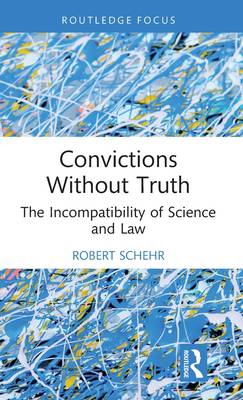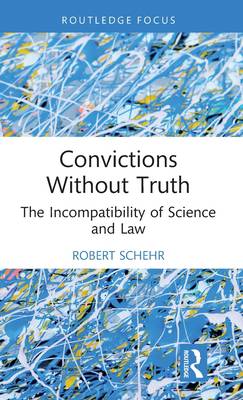
- Retrait gratuit dans votre magasin Club
- 7.000.000 titres dans notre catalogue
- Payer en toute sécurité
- Toujours un magasin près de chez vous
- Retrait gratuit dans votre magasin Club
- 7.000.000 titres dans notre catalogue
- Payer en toute sécurité
- Toujours un magasin près de chez vous
Description
In the first two chapters, readers are exposed to contemporary unscientific forensic practices as juxtaposed to the evidentiary standard announced by the United States Supreme Court in Daubert v. Merrill Dow Pharmaceuticals, as well as scientific requirements for validity and reliability of expert witness testimony. The remaining chapters provide an explanation for retention of existing, though faulty, forensic practices by way of analysis of path dependency, the fixation of belief, and neuro and cognitive psychology. Through immanent critique and unmasking, the book deconstructs prevailing forensic practices through application of existing published documentation. The final chapter addresses the fixation of belief from the perspective of neuropsychology and cognitive psychology. Readers will gain an understanding of the current concerns relating to application of contemporary forensic practices; current case law and federal rules guiding the introduction of expert witness testimony; and why it is that despite widely recognized concerns raised from within and outside of the criminal legal system, application of unscientific forensic practices continues. The book also shows how the criminal legal system is experiencing a paradigm shift due to dialectical juxtaposition of existing unscientific forensic practices with contemporary science. Readers are shown that because of its continued reliance upon unscientific forensic practices, the criminal legal system reveals its hegemonic commitment to social control through its willingness to accept "satisfying" as opposed to "truthful" results that generate wrongful convictions.
Convictions Without Truth will be of particular interest to students, academics, and practitioners working within the criminal legal field. It will also appeal to those wanting to know more about forensics and criminal law.
Spécifications
Parties prenantes
- Auteur(s) :
- Editeur:
Contenu
- Nombre de pages :
- 86
- Langue:
- Anglais
- Collection :
Caractéristiques
- EAN:
- 9781032208657
- Date de parution :
- 04-05-22
- Format:
- Livre relié
- Format numérique:
- Genaaid
- Dimensions :
- 140 mm x 216 mm
- Poids :
- 258 g







